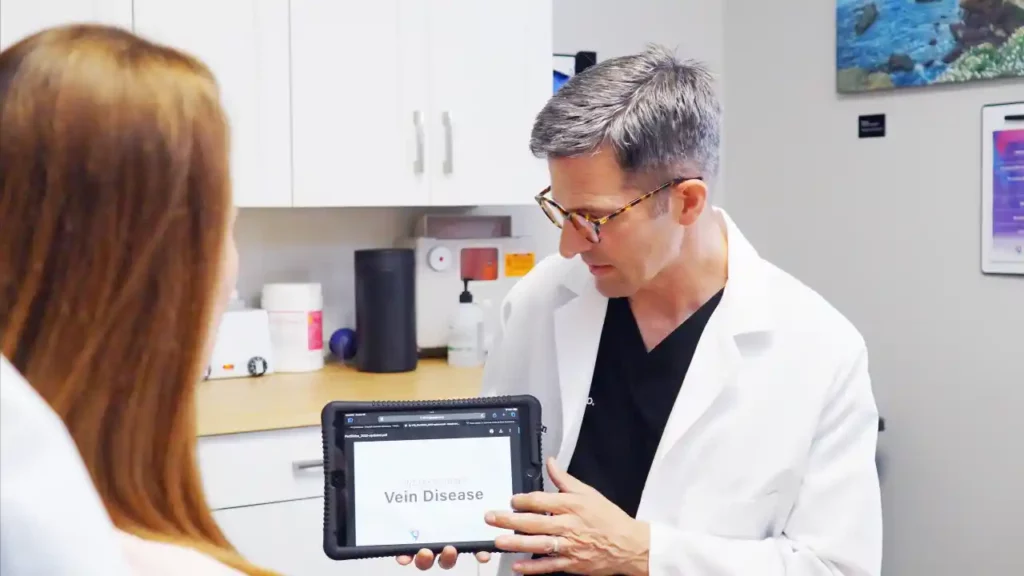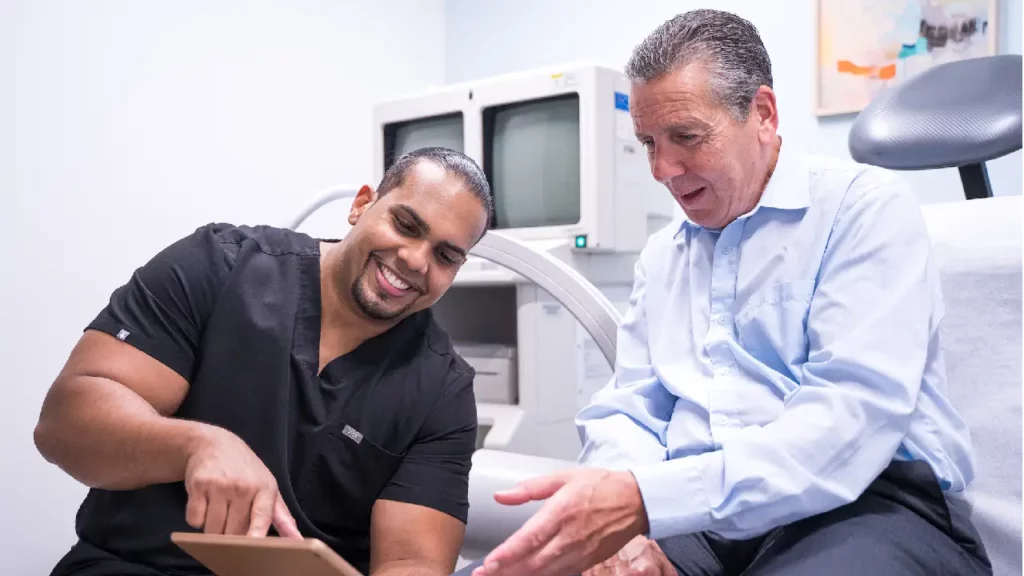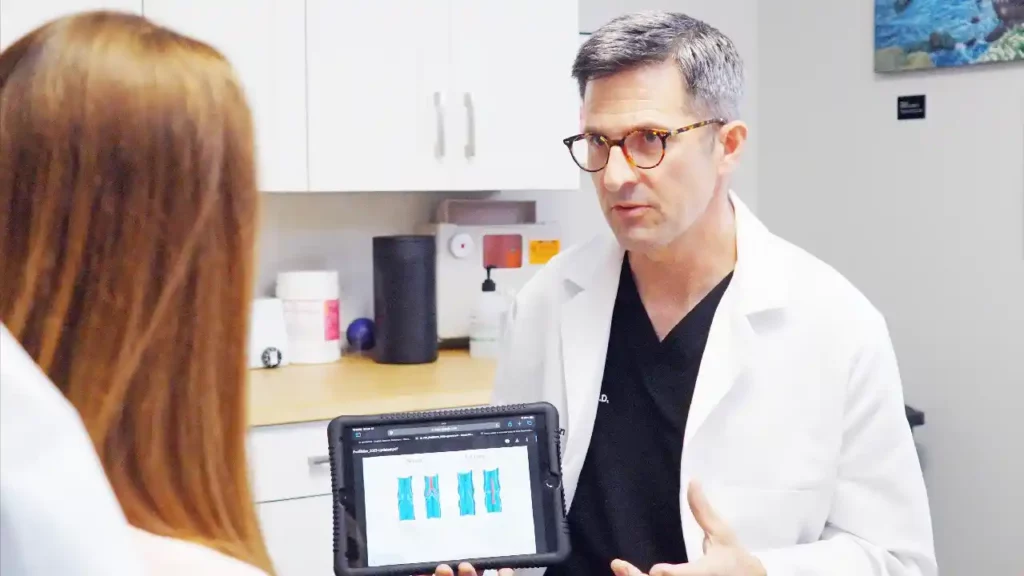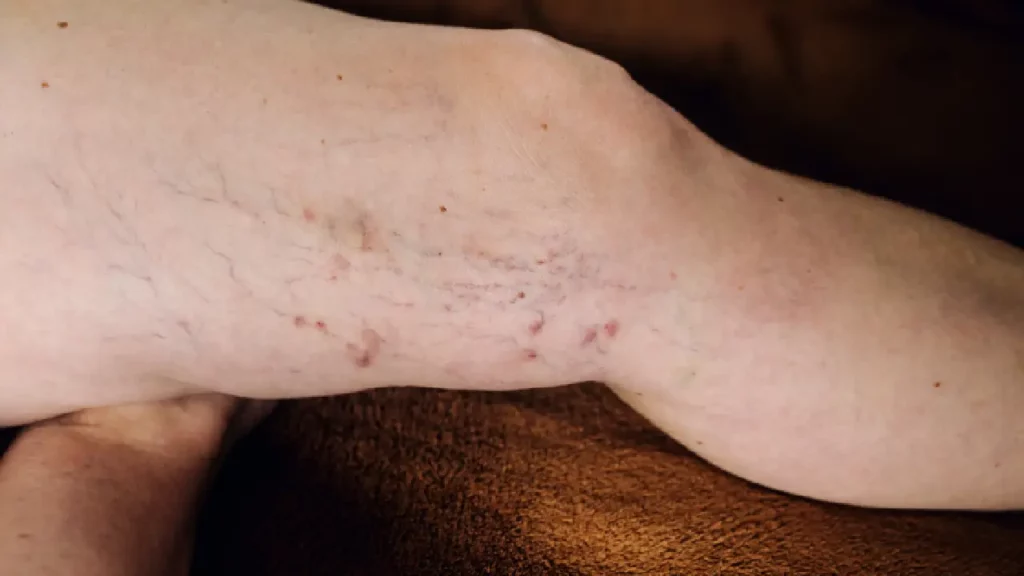At Vein Doctor, we understand that maintaining healthy leg veins is essential for your well-being. One crucial aspect of vein health is your diet and nutrition. By incorporating certain foods and nutrients into your daily routine, you can support the health of your veins and reduce the risk of varicose veins and other venous conditions. In this article, we’ll provide comprehensive advice on diet and nutrition for leg vein health, offering practical tips and insights from our board-certified vein doctors.
Stay Hydrated
Hydration is vital for maintaining healthy veins. When you are well-hydrated, your blood is less likely to become thick and sluggish, which can reduce the strain on your veins and improve circulation. Aim to drink at least eight glasses of water daily, and increase your intake if you are physically active or live in a hot climate. Besides water, herbal teas and water-rich fruits and vegetables, such as cucumbers and watermelon, can contribute to your daily hydration needs.
Consume Fiber-Rich Foods
A diet rich in fiber can help prevent constipation, which is a common issue that can exacerbate vein problems by increasing pressure in the abdomen and legs. Foods high in fiber include whole grains, fruits, vegetables, legumes, and nuts. Specifically, foods like oatmeal, apples, berries, broccoli, and lentils are excellent choices. By including these foods in your diet, you can promote regular bowel movements and reduce the strain on your veins.
Consume Foods High in Antioxidants
Antioxidants play a crucial role in protecting your veins from damage caused by free radicals. Foods rich in antioxidants, such as vitamins C and E, can strengthen vein walls and improve vein health. Citrus fruits, berries, bell peppers, and leafy greens are excellent sources of vitamin C, while nuts, seeds, and vegetable oils are rich in vitamin E. Incorporating a variety of colorful fruits and vegetables into your diet can ensure you receive an ample supply of antioxidants.
Focus on Omega-3 Fatty Acids
Omega-3 fatty acids have potent anti-inflammatory properties that can benefit your veins. Inflammation can weaken vein walls and contribute to the development of varicose veins. To support vein health, include foods rich in omega-3s, such as fatty fish (salmon, mackerel, sardines), flaxseeds, chia seeds, and walnuts. If you are not a fan of fish, consider taking a high-quality fish oil supplement after consulting with your healthcare provider.
Choose Foods with Bioflavonoids
Bioflavonoids, also known as flavonoids, are compounds found in various fruits and vegetables that have been shown to support vein health by strengthening blood vessel walls and improving circulation. Citrus fruits, berries, onions, garlic, and dark chocolate are excellent sources of bioflavonoids. Including these foods in your diet can help reinforce your veins and prevent issues such as varicose veins.

Reduce Sodium Intake
Excess sodium in your diet can lead to water retention and swelling, which can put additional pressure on your veins and worsen venous conditions. To reduce sodium intake, limit processed and packaged foods, which are often high in salt. Instead, opt for fresh, whole foods and season your meals with herbs and spices rather than salt. Reading food labels and choosing low-sodium options can also help you manage your sodium intake effectively.
Maintain a Healthy Weight
Carrying excess weight can increase pressure on your leg veins, making it harder for them to function properly. Maintaining a healthy weight through a balanced diet and regular exercise can alleviate this pressure and support vein health. Focus on a diet rich in fruits, vegetables, lean proteins, and whole grains while avoiding excessive amounts of sugary and fatty foods. Combining a healthy diet with physical activity can help you maintain a healthy weight.
Limit Alcohol and Caffeine Consumption
While moderate alcohol and caffeine consumption are generally safe for most people, excessive intake can lead to dehydration and vein issues. Alcohol can dilate your veins, causing them to become more prominent and potentially leading to varicose veins. Caffeine, on the other hand, can constrict blood vessels and impair circulation when consumed in large quantities. To support vein health, limit your alcohol intake to moderate levels and be mindful of your caffeine consumption. Opt for water, herbal teas, and decaffeinated beverages as healthier alternatives.
Avoid Trans Fats
Trans fats, found in many processed and fried foods, can have detrimental effects on your vein health by promoting inflammation and contributing to the development of atherosclerosis, a condition that hardens and narrows the arteries. To protect your veins, avoid foods high in trans fats, such as commercially baked goods, fried fast food, and margarine. Instead, choose healthier fats like those found in olive oil, avocados, and nuts.
Other Tips for Improved Leg Vein Health:
- Stay Active: Regular physical activity is crucial for maintaining healthy veins. Exercise helps improve blood circulation and prevents blood from pooling in your veins. Aim for at least 30 minutes of moderate exercise, such as walking, swimming, or cycling, most days of the week. Activities that engage your calf muscles are particularly beneficial, as they act as a pump to aid blood flow back to the heart.
- Elevate Your Legs: Elevate your legs whenever possible to reduce pressure on your leg veins and promote better circulation. If you spend a lot of time sitting or standing, take breaks to raise your legs above your heart level. This simple practice can help prevent swelling and discomfort associated with venous insufficiency.
- Wear Compression Stockings: Compression stockings can be a valuable tool for supporting vein health. They apply gentle pressure to your legs, helping to improve blood flow and reduce swelling. If you are at risk for vein problems or already have varicose veins, consider wearing compression stockings, especially during long periods of sitting or standing.
- Avoid Prolonged Sitting or Standing: Sitting or standing for extended periods can exacerbate vein issues by slowing blood flow. If your job requires long hours in one position, make an effort to move around regularly. Take short walks, stretch your legs, or perform simple calf exercises to keep your blood circulating efficiently.
- Maintain a Healthy Weight: Excess weight puts additional pressure on your veins, making it harder for them to function properly. By maintaining a healthy weight through a balanced diet and regular exercise, you can reduce the strain on your veins and support overall vein health.
- Practice Good Posture: Good posture can contribute to better circulation and vein health. When sitting, avoid crossing your legs, as this can impede blood flow. Instead, sit with your feet flat on the floor and your legs uncrossed. Additionally, standing with your weight evenly distributed can help prevent unnecessary pressure on your veins.
Follow a Holistic Approach to Vein Health
At Vein Doctor, we believe that a holistic approach to vein health is essential for achieving the best outcomes. By paying attention to your diet and nutrition, you can support your leg veins and reduce the risk of venous conditions. If you have any concerns about your vein health or need personalized advice on your diet and nutrition, schedule a consultation.
